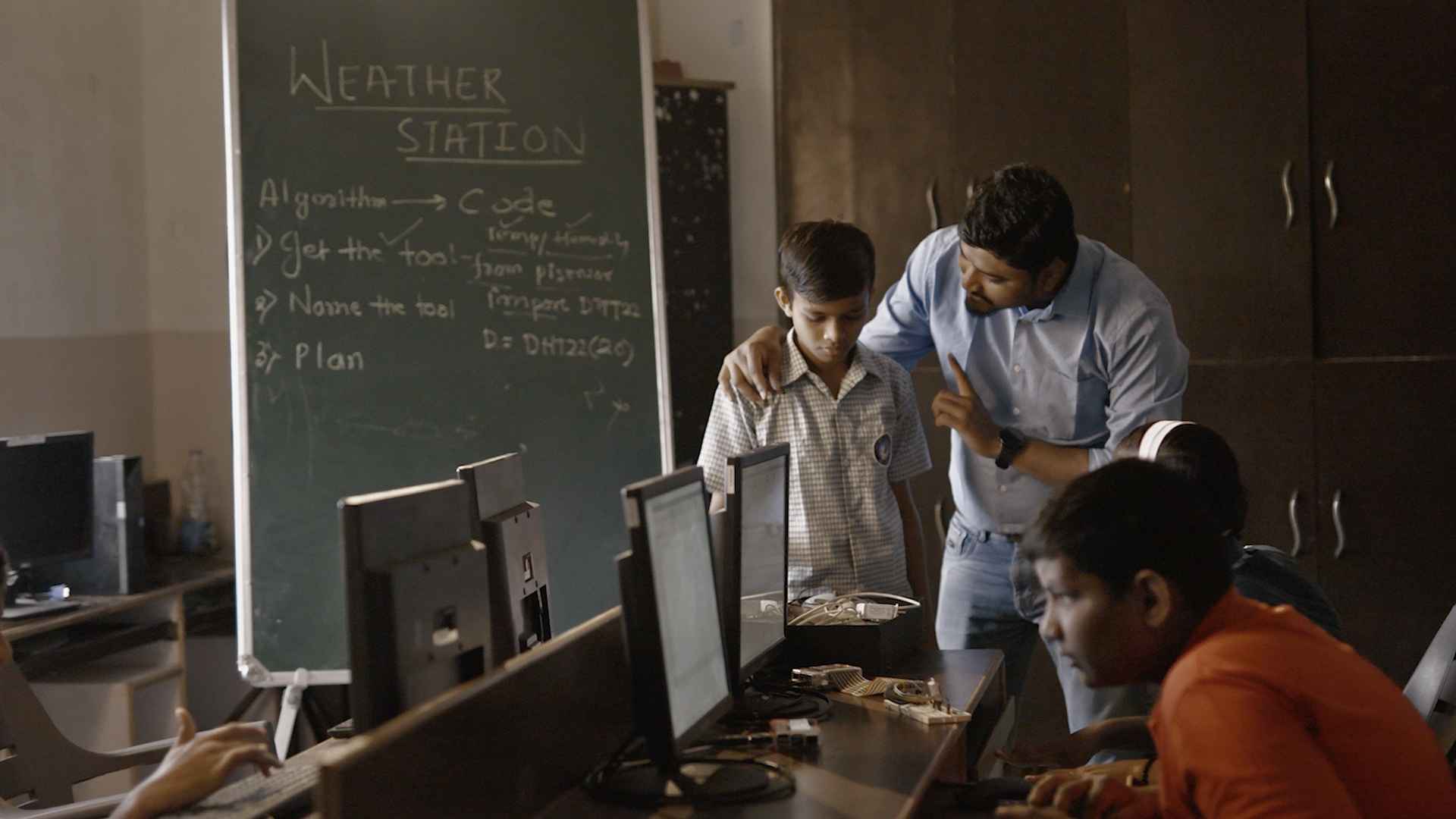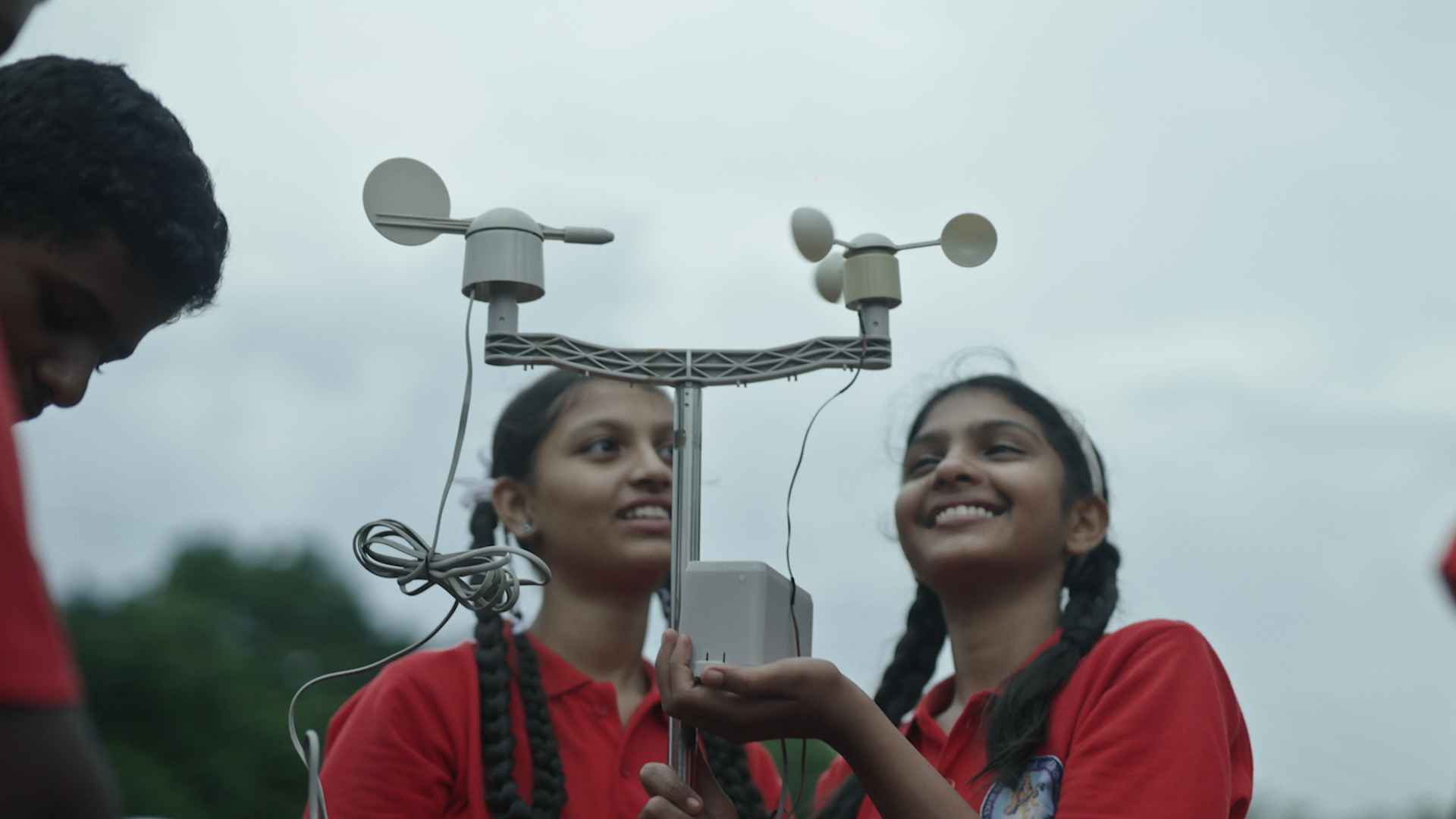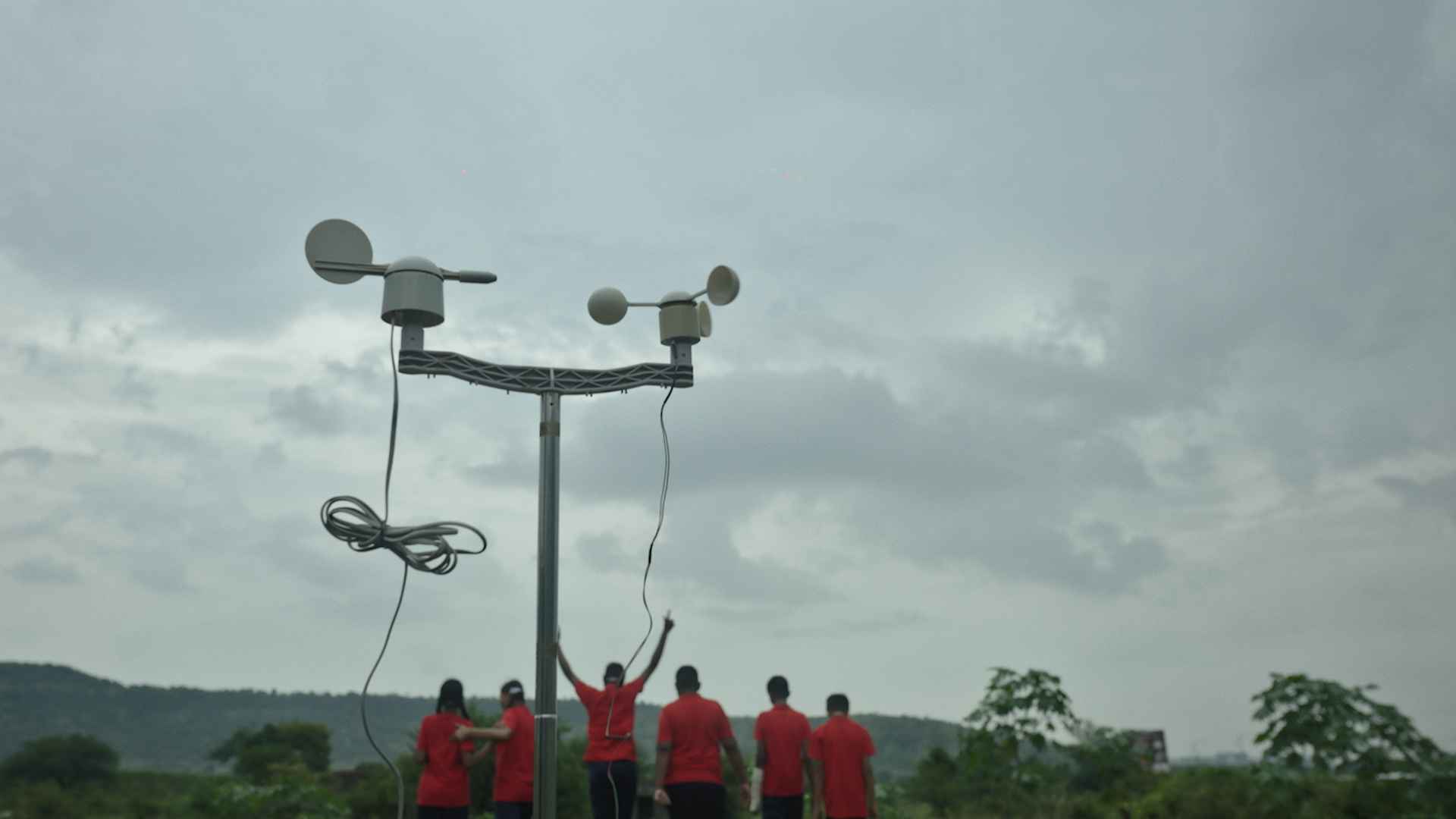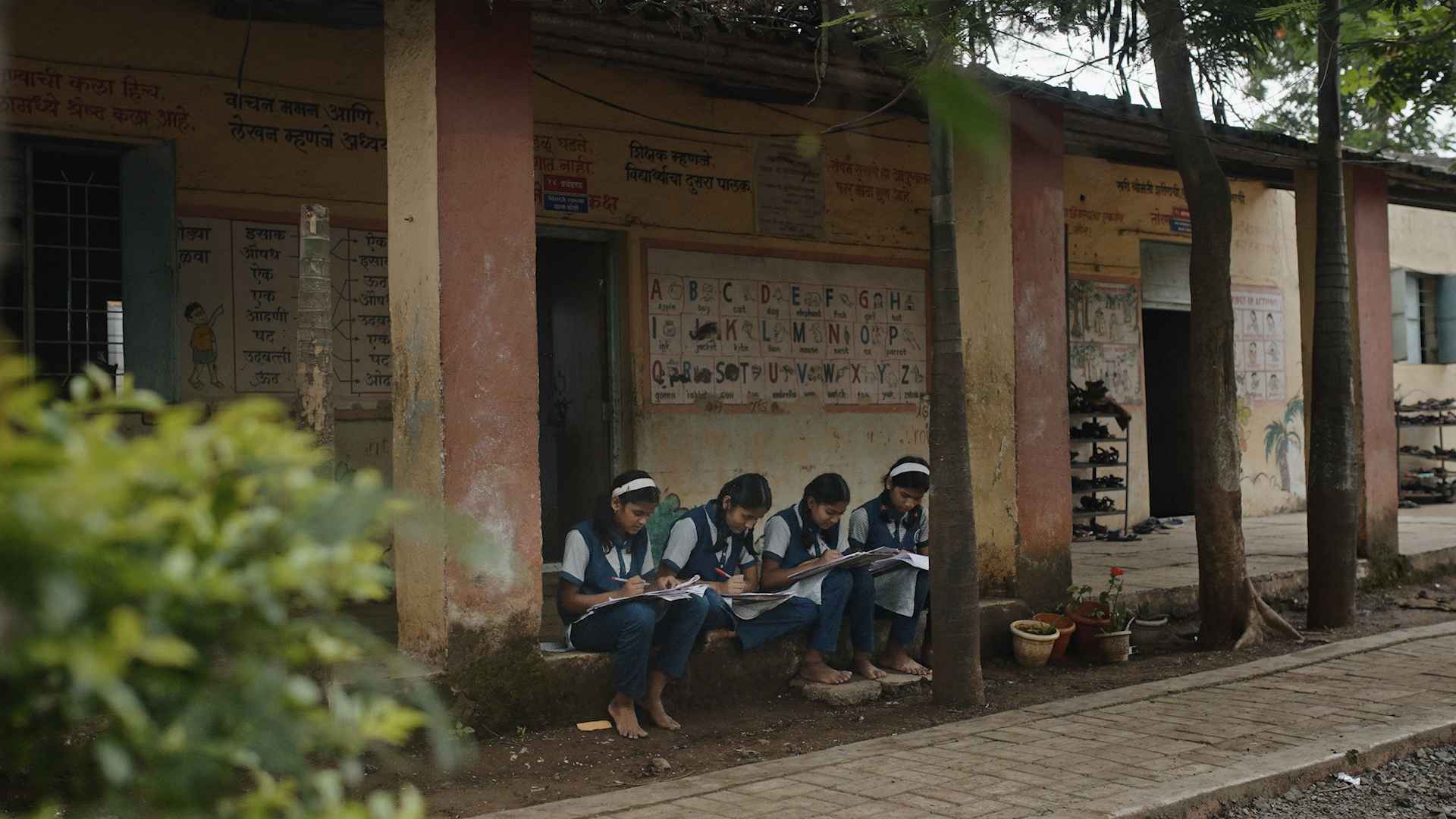College students of Class 8 of Zilla Parishad Faculty in Nande village of Maharashtra labored within the Amazon Future Engineer (AFE) Lab arrange by the Pi Jam Basis in partnership with Amazon. Right here’s how they constructed a climate station to assist farmers within the space.
This text has been sponsored by Amazon India.
The summer season of 2022 was unforgiving for India, and extra so for its villages, which regularly bear the brunt of utmost warmth. One such village is Nande in Maharashtra.
Whereas the farmers wished for some respite from the scorching solar, they feared the oncoming monsoon season for the cruel rains they’ll carry, which may be equally damaging. 12 months after 12 months, farmers have been devastated as their crops are submerged and the produce destroyed.
So, this 12 months, the scholars of sophistication 8 of the Zilla Parishad Faculty within the village determined to herald a change.
The varsity had just lately had an Amazon Future Engineer (AFE) Lab outfitted with raspberry pi and bodily computing sensors arrange by the Pi Jam Basis. Together with the sources and mandatory tech instruments to offer the scholars hands-on expertise in pc science, the AFE program additionally supplied a devoted mentor who helps children be taught pc science.
The scholars started to surprise if they might put their lab time to higher use.
“Why not use these instruments to assist the farmers?” they thought.
A climate station brings hope to Nande
Below the steerage of their mentor Manomeet Paikroy from the Pi Jam Basis, the scholars started ideating and troubleshooting.
The issue they wished to handle via the innovation was easy — assist the farmers get info on the climate that lay forward, in order that they’d have ample time to arrange their fields and safe the produce.
The kids coupled the data they gained in science class — scientific rules of temperature, stress, humidity and wind velocity — with the instruments supplied within the AFE Lab.
Inside a month, that they had their innovation able to be examined.
What influenced this radical transformation within the kids, the place they now not see an issue as an obstruction however slightly a problem?

Their mentor says their confidence stems from the entry that they now have to varied sources.
“The youngsters in these rural faculties had restricted entry to varied studying instruments. Due to this, they weren’t capable of discover new studying alternatives,” he says, including that in the present day, this actuality has modified by associating with the Amazon Future Engineer (AFE) programme.
The Pi Jam Basis, a non-profit enterprise, has been enhancing the standard of pc science schooling throughout India since 2017. As Pranjali Pathak from the inspiration explains, “they envision a world the place all kids have entry to wonderful and related pc schooling.”
The muse is devoted to bringing pc science to children and Amazon is supporting them in establishing labs as facilities of innovation to demystify know-how schooling for college students, educators and the federal government college techniques.
Pranjali emphasises that these labs are hubs the place kids can be taught to code and likewise construct stay initiatives whereas adhering to the varsity curriculum.
“The labs have sensors, computer systems and extra that kids can use whereas they work on a mission,” she provides.

Elaborating on how they constructed the climate system within the lab, Pranjali says it was a sequence of steps that led to the ultimate consequence.
“The kids knew how they wished the ultimate climate system to carry out and labored backwards. They knew they wanted to grasp ideas similar to temperature, humidity and stress completely, and so they had been studying these of their lessons at college. They might then chart out the instruments they would want from the Pi Lab and likewise ideate on find out how to write codes for the completely different capabilities,” she provides.
From entry, to the end result: Bridging the hole in know-how
“We need to democratise pc science studying”, says Pranjali when requested in regards to the goal of those labs. “The aim is to take away entry obstacles to inexpensive and high-quality pc science schooling for underprivileged college students.”
She notes that step one is to empower educators – by arming them with the required data and expertise in order that kids can be taught core ideas proper within the classroom as an alternative of relying upon an exterior supply.

“Nevertheless it doesn’t finish right here. The issue is deeper,” she says. “Even with educators having the suitable data, there have to be a way via which they’ll talk the identical to the scholars. That is the place labs come into play. Sadly, the federal government faculties we’re talking of both don’t have pc labs or have labs that don’t operate.”
“The AFE Labs are an area brimming with innovation and concepts and we obtain this at one-third the associated fee as a result of using Rasberry Pis. The labs enable for lots of tinkering and hands-on apply, enabling the scholars to discover issues, and doable options and be taught pc science within the course of,” she provides.

“College students are inspired to identify issues of their environment and provide you with options utilizing sources within the lab. As an illustration, the climate station they constructed was an answer to the summer season warmth.”
In partnership with AFE, 15 such labs have been arrange in faculties throughout Maharashtra, and so they declare to have “led to a metamorphosis in college students”. These labs mixed with the voluntary pc science fundamentals course provided to educators are constructing the general capability of the schooling system to ship high-quality pc science schooling.
Pranjali says they now use know-how to resolve issues they encounter. “The curriculum too is very on par with nationwide and worldwide faculties, and I can see an improved stage of ability,” she concludes.
We carry tales straight from the center of India, to encourage tens of millions and create a wave of impression. Our constructive motion is rising greater on a regular basis, and we might love so that you can be part of it.
Please contribute no matter you may, each little penny helps our crew in bringing you extra tales that assist goals and unfold hope.



